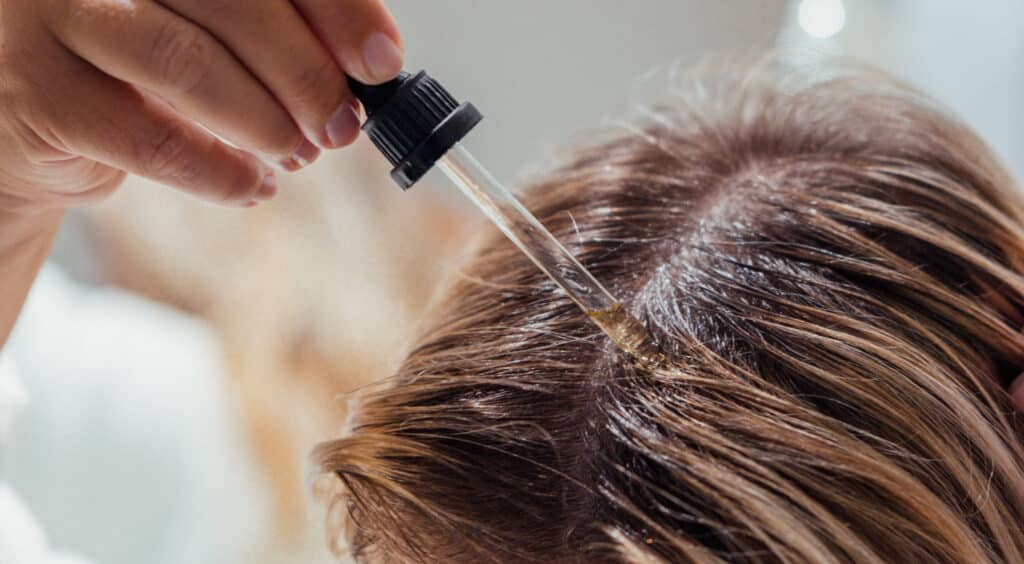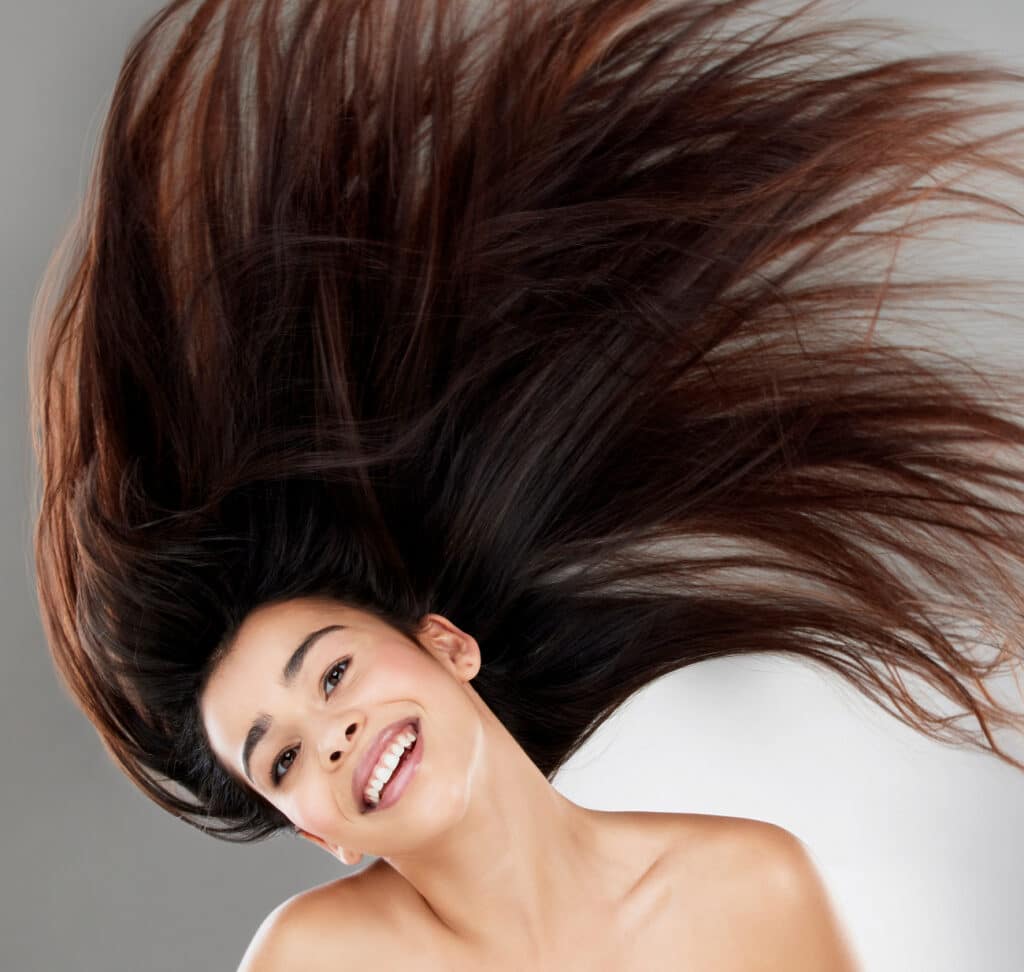Female pattern baldness is one thing that many women fear. Of course, we can’t fault them, can we? After all, who doesn’t love to flaunt their locks? What are some tested female hair regrowth treatment options women have to regrow hair? Wouldn’t you like to know?
Hair Loss in Women
Did you think hair loss is only for men? Think again! Hair loss is not just for men, it’s very much prevalent in women. As much as 30% if not more women endure hair loss at some point.
Unlike men, women have more reasons or causative factors for hair loss. How about pregnancy? What about menopause? What about hormonal upheavals? After all, hormone imbalances are more common in women. Ain’t it?
If it’s not hormone imbalances that cause hair loss, it could be other causative factors that can trigger or further hair loss. What about health conditions including PCOD? Hair shedding is a given for most women, just the reason or cause varies.
Treating Hair Loss
One way of treating hair loss is to promote hair growth! After all, when there’s excessive shedding, what better way to combat it than by improving growth rate? Even thinning hair could be due to hair loss.
However, to treat hair loss, identifying the root cause is important. Just taking measures to stimulate growth, or curb hair fall, one can’t fix hair loss. Getting to the bottom of things and dealing with the root cause helps resolve or treat hair loss.
There are many reasons and causes for hair loss in women, a reason why consulting a specialist can help identify and come up with a possible solution. Isn’t that what you want – a solution to the hair loss problem?
Treatment Options for Hair Loss in Women

The treatment options for hair loss varies with the cause and other factors. Let’s take a look at a few female hair growth treatment options.
Natural Remedies
Did you know there are proven natural remedies you can consider? It’s a good idea to try the natural route before opting for any other conventional methods to combat female pattern hair loss.
While natural remedies are not quick or instant solutions like say medications, they do work and in most cases, help combat female pattern baldness.
Ginseng
According to a study, using Ginseng showed significant impact on hair regrowth in patients enduring alopecia. It can be taken as a supplement or applied topically as a mask. I have tried a Ginseng supplement to increase my energy level and noticed an improvement in hair health.
Castor Oil
Rich in ricinoleic acid, this dense oil not only boosts scalp circulation and stimulates growth, it improves hair regrowth according to a study published in Journal of Medicine.
I always add a spoon of castor oil to my pre-shower massage blend. Did you know it darkens hair and makes it thicker? This means it also combats thinning.
Garlic
We use garlic for making our foods aromatic and tasty, did you know it helps with hair loss? A study found garlic to help stimulate hair regrowth when used topically.
You can crush a few garlic cloves, extract the juice and add it to a carrier oil of your choice. Apply this mixture and let it sit for 25 minutes at least before washing off.

Onion
Onions are gaining popularity as a hair loss aid. But it’s been used for ages to treat baldness, restore lost hair growth rate and promote hair regrowth.
Applying onion juice works best in my experience, though you can use onion infused oil. Shallots are more effective than large onions, though they work well too.
Antifungal Medication
Did you know antifungal medication has been used to treat hair loss in men and women? Yes, ketoconazole, an antifungal aid helps improve hair regrowth and combat male and female pattern hair loss.
Did you know scalp ringworm can trigger hair loss? Oral antifungal remedies are the way to go in such scenarios. They’re usually prescribed for a few months to ensure complete elimination of the fungus.
Platelet Rich Plasma Injections
Platelet rich plasma injections use the natural healing power of our platelets to curb hair loss. Did you know these injections work by attracting stem cells in the body to improve hair follicles and their health, promoting hair growth ?
Antiandrogens
What’s that? Antiandrogens help combat androgen triggered hair loss and strengthen hair. These treatments take a few months to work their magic on your hair to stimulate hair growth and curb hair loss. We all know increased androgens mean unwanted hair growth, right? Additionally, they help combat hormone related issues like that and curb testosterone production
Topical Medications
Depending on the type of hair loss and the impact, topical medications are recommended to combat female pattern hair loss. Did you know there are FDA approved topical medications to combat hair loss, thinning hair and improve growth rate?
Minoxidil is a topical medication that has been tolerated well by most women and exhibited minimal adverse effects in studies. Many women reported reduction in hair loss and increased hair regrowth with this medication. It is used to treat male pattern hair loss and female pattern hair loss.
Did you know Olumiant and Litfulo are FDA approved Janus Kinase inhibitors that help combat hair loss and improve hair growth. You know janus kinase inhibitors (JAK inhibitors) are used to treat severe alopecia?
Not just these, there are other topical female hair regrowth options that are also FDA approved. Do you know corticosteroid injections are used to treat alopecia areata or other hair loss issues? Do you know it helps combat autoimmune disease to promote hair regrowth?
Hair Transplantation
This is where hair follicles are moved to the sides and back of bald spots. Then a low level laser light is used to stimulate hair regrowth and growth. Hair transplants are often suggested as a last resort when other options don’t work or there’s no non-surgical option.
Supplements
There are natural supplements that help combat female pattern baldness and work as an effective hair loss treatment. This is probably why Vitamins Revive Hair Growth Vitamins kit is recommended for women enduring hair loss.
Not only are supplements effective for many, they’re also a natural way to combat hair loss and promote new hair growth. It’s also free from adverse effects like the many drugs that are used for hair loss in women.
Alternatively, you can try and get hair beneficial nutrients from food sources. We know what vitamins or minerals our hair needs, right?
Taking tests recommended by your practitioner can also help determine if or not you have any nutritional deficiencies. Have you tried any supplements for hair? If you did, did it help you?
Dietary & Lifestyle Changes
While this is not exactly a treatment option per se, this is a very important step in combating female pattern hair loss and keeping hair healthy. Did you know you can even improve hair density and nourish hair follicles incorporating simple changes in your hair care routine?
Irrespective of the type of hair loss, stress management is a must for improving your overall health. It’s not just when you’re losing hair, it’s important in more ways than one! Did you know stress can trigger the hereditary hair loss condition known as androgenetic alopecia? That’s not all. Apparently, stress can push more hairs into the resting phase and shorten the duration of anagen phase (growth phase)!
Dietary changes are another thing to consider. Not only because of the nutrients, diet has a role in everything health. Thin hair? Female hair loss? Stunted growth? Improving your diet can impact your hair health greatly and keep your locks healthy.
An active lifestyle and staying hydrated are important too. Do you know staying active and exercising regularly can help combat certain types of hair loss? What else do you think you should do? What else can help?
Hair Care Routine
This probably goes without saying, but it’s important to have a hair care routine. Come up with a routine that works well for you. Don’t know what’s best? Consulting a specialist can help come up with a custom routine best suited for your needs. Don’t you think so? What’s your routine like? Does it include hair masks or massage time?
Massage
One of the natural ways to combat hair fall is to get a nourishing scalp massage once a week. I notice my locks are healthier and happier, let alone grow better with regular scalp massages. It is also a great way to keep the scalp clear and boost scalp circulation. It is just a bonus that we all love a good massage and scalp massages are a great way to unwind!
Conclusion
When you notice hair loss, it’s time to pay attention to your hair. Healthy hair follicles are the key to great hair and scalp. These days, low level laser therapy is suggested to combat hair loss.
What would be your first choice as a remedial measure for combatting hair loss? When in doubt about what’s the appropriate treatment for you, consulting a specialist can throw light on what’s the root cause and what possible options are available for you.
With increased awareness, increasingly more are choosing to go the natural route. Undoubtedly, it is a safer and side-effect free option and can be given a shot. However, if your problem persists, it’s time to get medical attention without further delay. Don’t you think so?
FAQs
Can vitamin deficiency or iron deficiency cause you to lose more hair?
In most cases, there’s an underlying deficiency in those enduring hair loss. Iron deficiency is more common in women, though vitamin deficiency can also be a trigger.
Is hair loss a part of the aging process?
With aging, hair loss is becoming a reality for many. However, it can be curbed or even prevented using natural remedies.
How long does the transition phase last?
Transition phase for hair lasts for a few weeks.
Can we try over the counter drugs for hair loss?
It is important to consult a specialist before taking or using any drugs or supplements for hair loss. Yes, over the counter medicines are available but shouldn’t be taken without the advice of a professional.
Can we apply minoxidil on a bald spot?
Yes, it is suggested as a possible option. But many prefer to try natural options first, due to the side effects of using minoxidil.
What’s an example of a low level laser device to combat hair loss?
LLLD including caps and laser combs are available. Have you tried one of these?
What’s alopecia areata?
Alopecia areata is a hair loss condition where our immune system attacks hair follicles resulting in hair fall.
What blood tests are recommended when enduring hair fall?
Vitamin D and B 12 blood tests are recommended to check for deficiency.
Do medical conditions trigger hair fall?
Yes, certain medical conditions including thyroid can trigger hair fall.
What’s active hair loss?
A pull and tug test is used by dermatologists to determine how severe is your hair loss and also if it is active hair loss. It’s done by gently pulling a few strands and tugging them – if 6 or more strands fall out, you’re facing active or severe hair loss.

